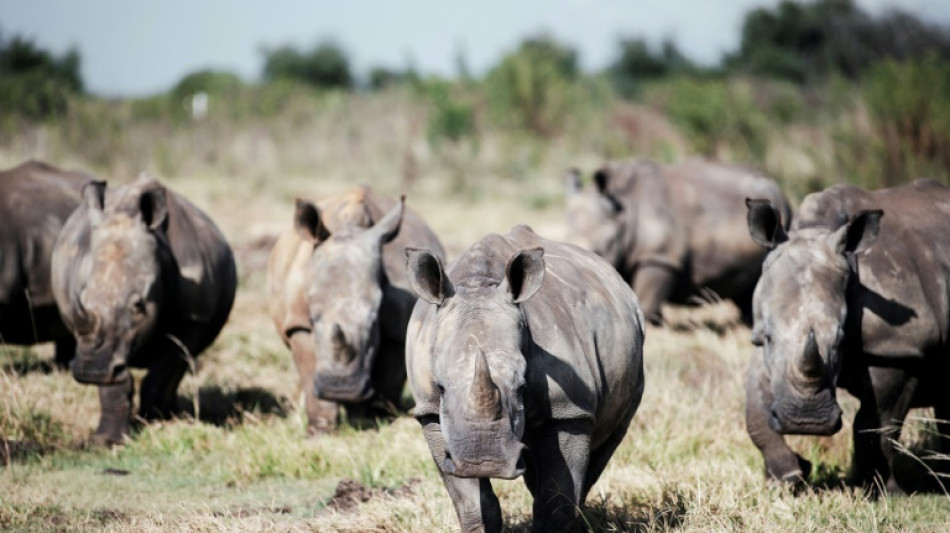
S.African rhino farm, world's largest, bought by NGO: statement

The largest rhino farm in the world, which is home to 2,000 animals and located in South Africa, has been bought by the NGO African Parks, the organisation said Monday.
Home to nearly 80 percent of the world's rhinoceroses, South Africa is a poaching hotspot, driven by demand from Asia, where horns are used in traditional medicine for their supposed therapeutic effect.
The government said 448 of the rare animals were killed across the country last year, only three fewer than in 2021 despite increased protection at national parks such as the renowned Kruger.
"African Parks has stepped in as the new owner of the world's largest private captive rhino breeding operation," the conservation NGO said in the statement.
The NGO will take over the 7,800 hectare "Platinum Rhino" site in the North West province, which it says currently is home to 15 percent of the world's remaining wild population of southern white rhino.
The rhino farm was previously owned by 81-year-old South African conservationist John Hume, who auctioned the property earlier this year.
Although he said he was looking for a "billionaire" to take it over, African Parks said that no offers were received, leaving the rhinos at "great risk of poaching".
The NGO said it received from the South Africa government.
Hume told AFP in an interview before the sale that through the years he had lavished around $150 million on his massive philanthropic project to save the world's second largest land mammal.
Security and surveillance was the farm's biggest cost, he said.
African Parks, which manages 22 protected areas across the continent, says it plans to return 2,000 southern white rhino to the wild over the next 10 years.
The species was hunted to near extinction in the late 19th century but gradually recovered thanks to decades of protection and breeding efforts.
B.Cooper--TNT